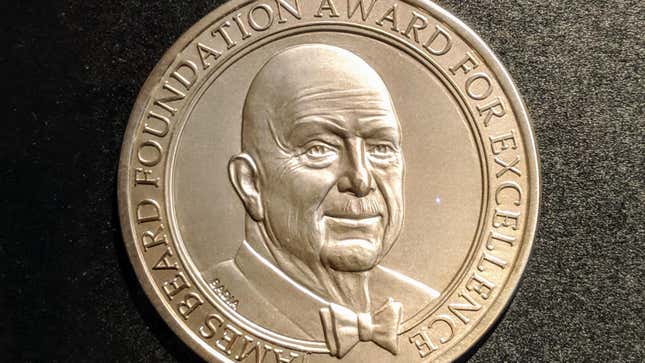
No American food writing awards carry the same weight, or secondary benefits, as those granted by the James Beard Foundation (JBF). Merely being nominated is considered to be an achievement, and chefs, restaurateurs, and writers prominently feature JBFA nominations and wins on their resumes and in their social media bios. So, it’s more than slightly ironic that John Birdsall—a journalist, author, and former line cook who himself has won two Beard Awards, sat on the nominating committee for awards for chefs and restaurants in California, and has judged a subcategory of the journalism awards—recently wrote in The Washington Post that he believes James Beard would have hated the awards that bear his name.
Birdsall, perhaps more than anyone else still alive, is in a position to be able to speak authoritatively about Beard’s potential viewpoints. His upcoming book, The Man Who Ate Too Much: The Life of James Beard is the encapsulation of four years of research and is being released during a time of momentous strife for the organization. As I wrote about in August, in response to the COVID-19 pandemic both the 2020 and 2021 annual awards have been effectively canceled. But, as Birdsall writes, the decision to cancel the awards wasn’t just about the pandemic; it was also due to ongoing internal strife:
“In subsequent reporting in the New York Times, Pete Wells wrote that the decision to scrap the 2020 announcement was made because, despite the foundation’s focus on racial and gender diversity in recent years, not one Black winner was included in the 23 categories already shortlisted and voted on by the subcommittees.”
This lack of diversity isn’t just a signal that the Foundation is facing significant problems with internal systemic bias and racism. It also flies in the face of the expansive, anti-elitist message that James Beard championed throughout his career. Birdsall writes that Beard “spent his life urging us to kick down the barriers — of class and geography, and the manipulations of a food media run by mega companies or a small circle of Manhattan elites — that kept many Americans from knowing the pleasures of food and drink.”
Regardless of whether you personally use JBF awards to decide where you eat and drink or which food writing to consume, Birdsall’s upcoming book looks like it will be one of this year’s essential reads, and his article in The Washington Post is worthy of your time. It’s a story about how the Foundation posthumously named for James Beard seems to have lost sight of his true legacy.